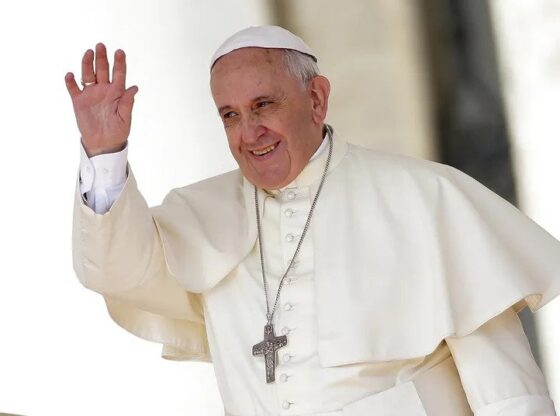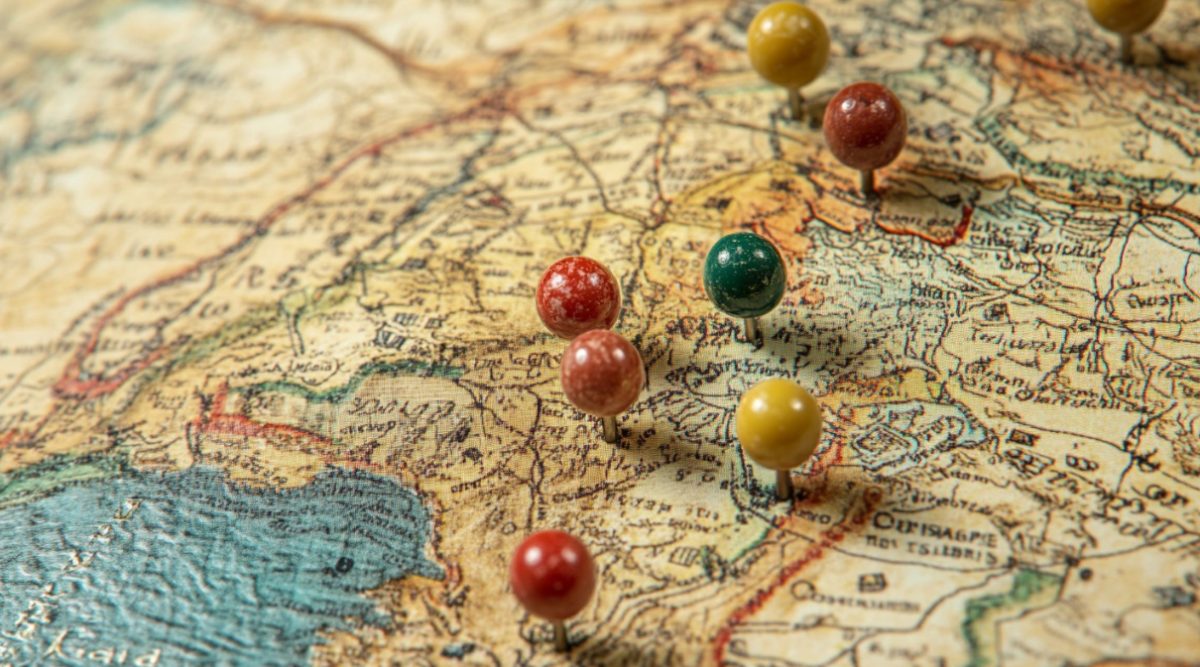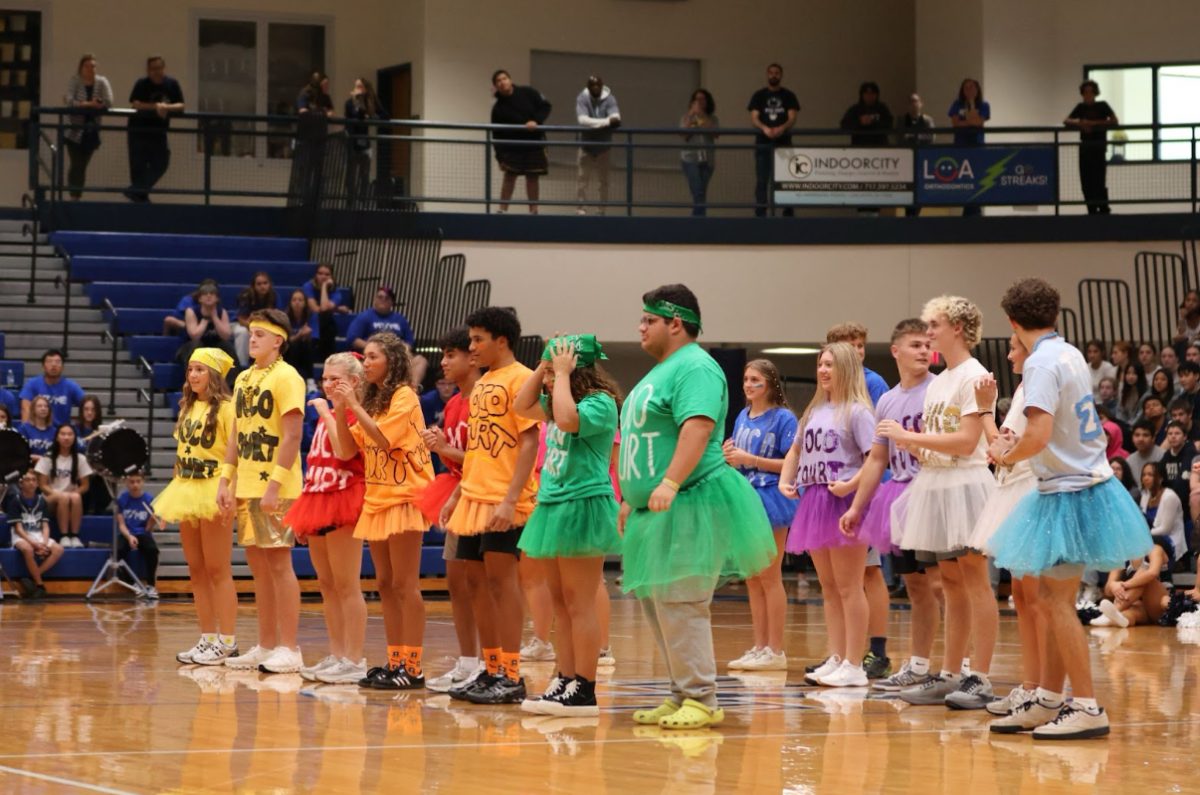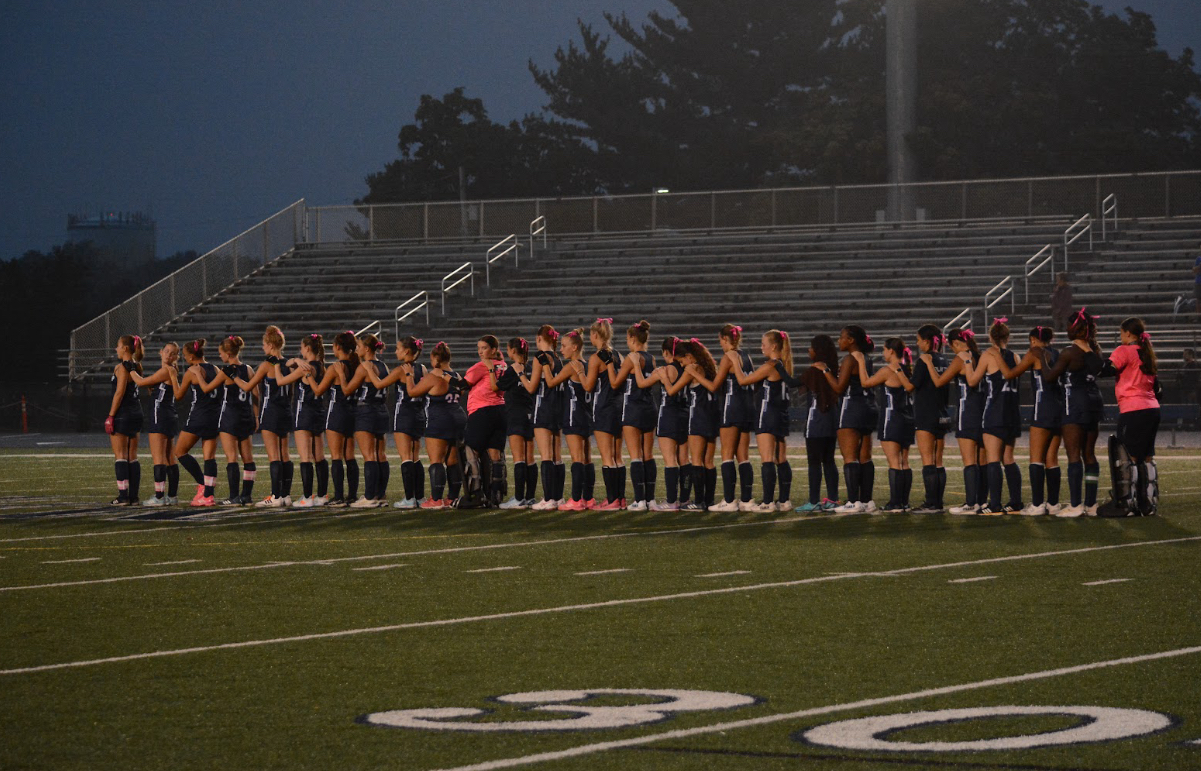On April 21, Pope Francis (Jorge Mario Bergoglio) died. Pope Francis served as the head of the Catholic Church for 12 years.
Pope Francis was born on Dec. 17, 1936 in Argentina and was the son of two Italian immigrants. He had multiple careers in different fields. After studying in high school to become a chemical technician, he worked in the food-processing industry. He was later inclined to hold a position within the church. He entered the Jesuit novitiate in 1958 and then pursued further academics, studying humanities in Santiago, Chile, and earning a licentiate (equivalent to a master’s degree) in philosophy in Buenos Aires. After graduation, he taught literature and psychology at a high school while pursuing a degree in theology. He was ordained a priest in 1969 and took his final vows in the Jesuit order in 1973, and subsequently served as superior (head) of the Jesuit province of Argentina (1973–79). During the ensuing Dirty War (1976–83), a campaign by the country’s military dictatorship against leftists, the Pope claimed to have helped hide and protect people who were in danger of prosecution for their beliefs. He was named an auxiliary bishop of Buenos Aires in 1992. He was appointed archbishop of Buenos Aires in 1998, a position he maintained until he was elected pope, and in 2001 he was made a cardinal.
On March 13, 2013 he took the position of Pope. The Catholic church’s reputation had been tarnished with the sexual abuse scandals that took place in the 80s and 90s. Pope Francis addressed this in his first public address, calling for spiritual renewal in the Catholic church and a greater focus on the poor, and condemned the forces that diverted the church from its ministry. In June 2013 Francis issued the first encyclical of his papacy, Lumen fidei (“The Light of Faith”). Its key messages consisted of: faith is a light for life, faith is rooted in love and truth, faith is communal, faith and reason work together and faith transforms society. He soon became noted for making statements that demonstrated openness to different perspectives of Catholic doctrine. In his first papal news conference he was asked about his position on homosexuality, saying; “If a person is gay and seeks God and has good will, who am I to judge?” He also criticized the church’s obsession with homosexuality, abortion and birth control. Pope Francis tried to restore the churches’ reputation, especially regarding the sexual abuse scandals, but he also prayed for the vistims and urged bishops to reach out to their families in support. Supporting the underprivileged was a major aspect of Francis’s mission, and he advocated for a broad ministry that sought to engage not just non-Catholic Christians but also non-Christians. Francis published an apostolic exhortation in November 2013 called Evangelii Gaudium, or “The Joy of the Gospel,” in which he calls on the church to embrace its global variety and condemns economic inequality.
Francis’ second encyclical as pope, Laudato si’ (“Praise Be to You”), was published in May 2015. Laudato si’ declares that environmental deterioration is “a moral issue” that is fueled by unbridled capitalism and selfishness, which makes people forget their “common home,” Earth, and the bonds that bind them. The document also promoted the rights of indigenous peoples.
Francis published his second exhortation, Amoris laetitia (“The Joy of Love”) in March of 2016, which addressed family issues within the church. He encouraged priests and bishops to be more welcoming and less judgemental to gay people, divorced women who had remarried and not obtained annulment and single parents, even indicating that they might be able to receive Holy Communion.
Francis edited the catechism in August of 2018 to fully reject the death penalty, saying it is “inadmissible because it is an attack on the inviolability and dignity of the person.” He was the first Pope to visit the Arabian Peninsula (the birthplace of Islam), as his mission was to promote peace. While on his visit, he went to the Global Conference on Human Fraternity and met with the head of Sunni Islam.
In October of 2019 Francis had a three-week assembly of the Synod of Bishops in the Amazon region. Their mission was to highlight the importance of the rainforest. Francis issued the apostolic exhortation Querida Amazonia(“Beloved Amazon”) in February of 2020.
COVID-19 paused the Pope’s agenda. In 2021, the Pope suffered a number of health issues, but he did visit Canada in July of 2022, where he met with survivors of abuse within religious boarding schools in an attempt to erase indigenous children’s culture. He there begged for forgiveness about the evil inflicted on the indigenous people by Christians. He called their acts incompatible with the gospel and the teachings of Jesus Christ. In December of 2023, the Vatican issued the doctrinal declaration Fiducia supplicans(“Supplicating Trust”), which formally announced that the church now permits the blessing of same-sex couples. The pope issued a new encyclical, Dilexit nos (“He Loved Us”), subtitled “Letter on the Human and Divine Love of the Heart of Jesus Christ,” which calls for Catholics to refuse individualism and consumerism. It also addressed societies overreliance on technologies. In recent months he put out multiple statements showing his disapproval of President Donald Trump’s mass deportation plans. In February of this year, the Pope developed pneumonia and bronchitis, hospitalizing him. He died on April 21 at 88 years old, due to a cerebral stroke. His last public address took place on Easter, where he condemned antisemitism, and called for peace in Gaza and Ukraine.
Francis became known for his efforts to promote the teachings of the Gospel and the Catholic Church. Following periods of controversy within the church, his leadership contributed to restoring its reputation . He focused on global peace and worldwide issues, extending his efforts beyond the church to broader humanitarian concerns. His papacy has been noted for its significant reforms and widespread impact.
















Liam Zbinden • May 20, 2025 at 8:33 pm
Pope Francis did not criticize anything on the Church’s matters concerning homosexuality, birth control, and abortion. Even when Pope Francis affirmed that homosexual people cannot be judged, it means that we cannot determine the salvation of that person, it is a blasphemous claim to be said. Even as Archbishop of Buenos Aires, he opposed the legalization of same-sex marriages. Pope Francis didn’t change church teaching on homosexuality stating that homosexual acts are “intrinsically disordered.” Pope Francis never contradicted what the Church says on abortion and will never be changed. Pope Francis said this about abortion, “hiring a hit man to resolve a problem.” Even though he tried to bring more empathy and forgiveness does not make him a progressive Pope. Pope Francis and other popes never tried to contradict an infallible doctrine that is an absolute dogmatic belief in the Church for two thousand years of history but tried to help the World understand the theology behind them.